Particle and Fibre Toxicology. Vol. 10, Iss. 29, July 2013
Maternal exposure to combustion generated PM inhibits pulmonary Th1 maturation and concomitantly enhances postnatal asthma development in offspring
Riassunto
Background Epidemiological studies suggest that maternal exposure to environmental hazards, such as particulate matter, is associated with increased incidence of asthma in childhood. We hypothesized that maternal exposure to combustion derived ultrafine particles containing persistent free radicals (MCP230) disrupts the development of the infant immune system and results in aberrant immune responses to allergens and enhances asthma severity.
Methods Pregnant C57/BL6 mice received MCP230 or saline by oropharyngeal aspiration on gestational days 10 and 17. Three days after the second administration, blood was collected from MCP230 or saline treated dams and 8-isoprostanes in the serum were measured to assess maternal oxidative stress. Pulmonary T cell populations were assayed in the infant mice at six days, three and six weeks of postnatal age. When the infant mice matured to adults (i.e. six weeks of age), an asthma model was established with ovalbumin (OVA). Airway inflammation, mucus production and airway hyperresponsiveness were then examined.
Results Maternal exposure to MCP230 induced systemic oxidative stress. The development of pulmonary T helper (Th1/Th2/Th17) and T regulatory (Treg) cells were inhibited in the infant offspring from MCP230-exposed dams. As the offspring matured, the development of Th2 and Treg cells recovered and eventually became equivalent to that of offspring from non-exposed dams. However, Th1 and Th17 cells remained attenuated through 6 weeks of age. Following OVA sensitization and challenge, mice from MCP230-exposed dams exhibited greater airway hyperresponsiveness, eosinophilia and pulmonary Th2 responses compared to offspring from non-exposed dams.
Conclusions Our data suggest that maternal exposure to MCP230 enhances postnatal asthma development in mice, which might be related to the inhibition of pulmonary Th1 maturation and systemic oxidative stress in the dams.
Commento
Diversi fattori ambientali sembrano essere coinvolti nell’aumentato rischio di sviluppare asma e malattie allergiche osservato nei paesi industrializzati nel corso degli ultimi decenni , anche se i meccanismi di fondo rimangono tuttora in gran parte sconosciuti .
Recenti studi epidemiologici sul tema suggeriscono che l’esposizione materna, durante la gravidanza, a fattori ambientali come il particolato atmosferico urbano (PM), potrebbe provocare un aumentato rischio di asma nel bambino, a causa degli effetti immunotossici esercitati da questi inquinanti sullo sviluppo della risposta immunitaria polmonare.
Il presente studio ricapitola i dati epidemiologici esistenti in letteratura ed approfondisce l’argomento dimostrando lo sviluppo di alterazioni della maturazione e della risposta Th1, al livello polmonare, nella prole di cavie da laboratorio esposte a PM.
Articoli correlati che potrebbero interessarti
Maternal Exposure to Air Pollution and Adverse Birth Outcomes in Halifax, Nova Scotia
Journal of Occupational and Environmetal Medicine. Vol. 57, Iss. 12, December 2015
Cleaning products and short-term respiratory effects among female cleaners with asthma
Vol. 72, Iss. 11, November 2015
Exposure-response relationships for inhalant wheat allergen exposure and asthma



